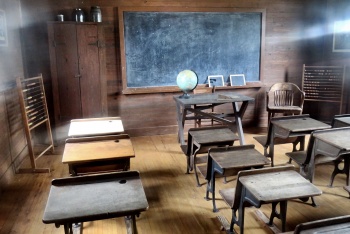Extend NZ/NZEXT101/Teacher for Learning/Climate
| “ | Everyone should have an opportunity to learn in a positive environment, to enjoy the learning process, and feel comfortable and content within it. | ” |
| —Barry Saide | ||
The social, emotional, and intellectual climate of the course and the classroom has an impact on learning. We can promote a positive climate in our classroom by:
- Providing opportunities for small-group learning and interaction
- Creating a classroom charter
- Listening carefully
- Offering opportunities to be heard
- Providing an environment in which it's OK to feel uncertain about things
- Examining our assumptions
- Being respectful and inclusive
- Considering cognitive, psychomotor (the relationship between cognitive functions and physical movement), and affective domains
- Being an authentic and genuine teacher
- Co-designing learning goals and classroom expectations
Factors that promote a healthy classroom climate will vary depending on the people involved. It is always best to establish ground rules for a class right from the outset, so that the classroom climate standards are co-constructed and meaningful to the group as a whole.
What does a positive classroom climate look like online? As we'll see in other modules, the Community of Inquiry is a helpful framework. Beyond just the presentation of content, described as the 'cognitive presence', it is also important to balance and consider social and teaching presences.
Be aware that some ideas of a positive classroom space can come at the expense of our at-risk, disempowered, and/or disadvantaged students. When trying to create a learning environment that is productive and inclusive for all students, consider the multiplicity of experiences students might be coming from.
Some great resources that might help you think about this are:
- Anthony Jack’s Ted Talk 'On Diversity: Access Ain’t Inclusion'
- The New Zealand Ministry of Education's resources on Inclusive Education. Their website highlights that "Enacting Te Tiriti o Waitangi principles, inclusive learning communities do the right thing by learners and communities (tika), with integrity (pono) and with care and sincerity (aroha)"[1].
- Peter James Hudson’s interview with Katherine McKittrick, author of Demonic Grounds, on Trigger Warnings
Create an introductory activity connected to your discipline to get to know your learners. Here are some examples for more 'traditional' subjects; how might you apply a similar idea?
- In a Human Geography class, you could ask every student to identify a location from which they would want to conduct field work, and why.
- For English Literature, each student could discuss what fictional character they would like to invite to dinner, and why.
- In History, ask what figure, living or dead, would be the most interesting to have at a cocktail party, and why.
Can you think of some fun and interesting questions for your discipline?
Visit the Discussion Forum to share your thoughts and see what others are saying. If this is your first time posting in an OERu Forum, you will need to create an account.


